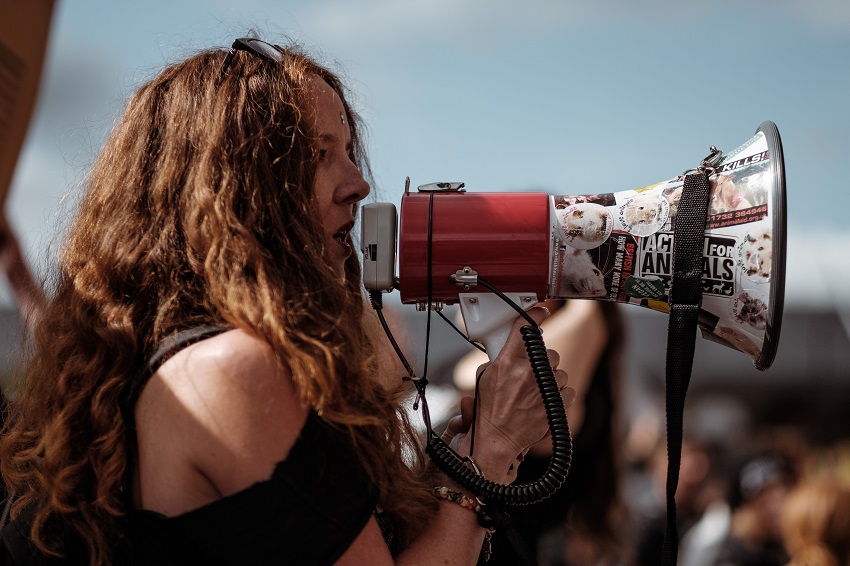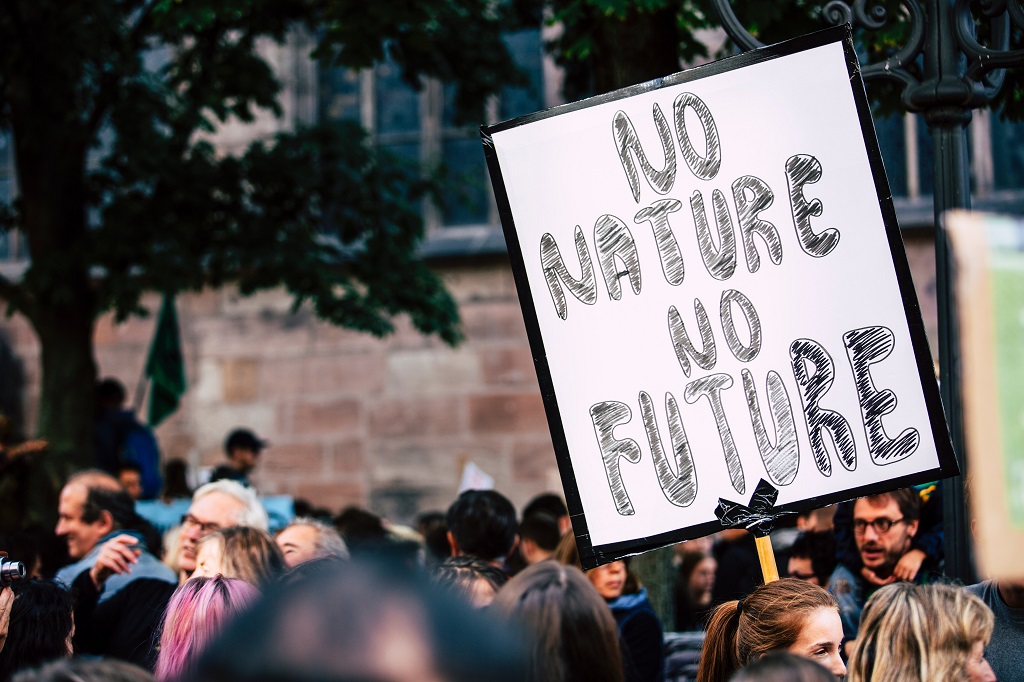Could democracy save us from climate change?
Liberal Democracy doesn’t appear to be able to address climate change or the underlying economic system that’s causing it. When things are good, Democracy works just fine and there’s plenty of time to explore different options but during an emergency, when time is short, and countries need to make hard decisions quickly, the system falters.
Like an army during wartime, the window for discussion has closed. The time has come to execute the plan that will give us the best chance of keeping us within our carbon budget. A compromise that may work in normal times is a luxury that we can no longer afford. Just like on the battlefield – the time for debate is over.
The Democratic approach to addressing climate change has always been a juggling act. Politicians are torn between their own selfish desires to keep their jobs and doing what’s best for the country. This requires that the politician holds space for two policy ideas that are incompatible – support for a growing fossil fuel industry and promises to tackle climate change.
Yet somehow on election night, this absurd narrative is bought by enough citizens and the politician wins. Now it’s time to pay back the financial support from business interests in the form of regulatory changes or tax reductions – this is to ensure that funding continues to flow for the next election. Simultaneously, politicians must appear to be doing what’s best for the country in terms of climate change which has become a key issue for the majority of voters.
“These two ideas can only co-exist in a world where logic is suspended and unicorns run free.”
The problem is that climate change is an all-encompassing energy and systems challenge, and to address it effectively requires shrinking the fossil fuel sector. This is problematic for poll-watching politicians for two reasons. It interferes with their future election funding needs and it would also likely cause major disruptions in how we source and use energy, and that means job disruptions and inconvenience – not exactly a winner on voting day.
The wiggle room for politicians is that because climate change is relatively slow-moving, they can pretend that they’re doing something when in fact nothing of consequence is happening. In this way, system disruption is minimal, jobs are protected and politicians can have money spending “photo ops” to further the mirage that they’re making progressive climate investments for the future. This is how you win elections in the era of liberal democracy and climate change.

The Battle Lines
If it’s not clear by now, corporations and the super-rich control most of our liberal democracies and they’ve been interfering with progressive climate legislation for decades. The time for talk has passed and the battle lines are clear. On one hand, we have a majority of people who are supported by science and who are deeply concerned about the future, and on the other hand, we have the corporate elite and billionaires who are ignoring science and fighting for the status quo.
A Simple Ask
A successful citizen climate strategy must be simple, it must speak with one voice and it must have a clear message. The effort might seem like it’s directed at politicians but it’s actually the voting public that’s the primary audience – they need to be won over. If the public connects with the message then the government will respond – if they don’t, then the government will feel justified in ignoring the movement or using force to shut it down.
RELATED ARTICLES: Surviving Climate Change: The Questions Regarding Change |Surviving Climate Change: A Battle for Power and Control |Surviving Climate Change: Should We Place Our Hope in Governments? |Surviving Climate Change: Where Should We Place Our Hope?
The Demands
Stop stonewalling on progressive climate legislation at the behest of the corporate elite and billionaires. We demand three things from our politicians:
Do your job! Use the power that we’ve granted you to prevent climate chaos. Lower emissions now – not by 2050 when runaway climate change will already be wreaking havoc on our society.
Provide a financial safety net for those who face the immediate impacts of progressive legislation and a climate breakdown. That would include protection and compensation for anyone in the fossil fuel sector who may lose their job or for those who may experience housing loss due to climate-induced, floods, fires or hurricanes.
Stop telling us that there’s no money. If there’s money for endless wars, trillion-dollar bailouts for Wall St., and trillions more in the form of subsidies for fossil fuel companies, then there’s money to pay for the transition to a post-carbon economy.
Shake the System:
I think we all want to believe that our vote makes a difference but I’m not so sure anymore. I think we can elect good people who can raise good ideas in parliament/congress and the media, and sometimes when given the chance, they can even legislate progressive policy. But without a massive shift in voter behavior, these individuals are often just a lone voice or part of a tenuous coalition in a sea of corporate-backed legislation.
I don’t suggest that we give up on voting for candidates who will protect the climate, in fact, to the contrary, I think we need to fight harder than ever but I also think we also have to be realistic about the democratic process these days. I’m not hopeful that it will deliver the necessary political changes to protect our biosphere but I do think that it’s an important ingredient in the quest for change.

Civil Disobedience
Something changed when Greta Thunberg entered the world stage. She was able to call out the lies and hypocrisy of our leaders like only a child could. It felt good to have someone in the room telling the so-called leaders, what we’ve been thinking for so long, but as Greta would admit, it hasn’t changed policy in a meaningful way.
Global governments continue to subsidize the oil industry by trillions every year, and since the 2015 Paris agreement, 33 major global banks have collectively poured $1.9tn into fossil fuels, according to Rainforest Action’s report. Apparently corporate and political promises mean nothing.
Next came the Extinction Rebellion. They tried to shock people to get their attention while also testing different ideas of how to interfere with the capitalist system. There was arguably some success but the demonstrations also caused many busy people to be inconvenienced and this was a serious misstep. As I stated earlier, the voting public is an essential ally that needs to be won over for any changes to occur. But none of it mattered to the government – their response was the same as with Greta – nothing. What did change, however, was that the government pulled a new tool out of their toolbox by using the police to arrest demonstrators.
There are some brilliant aspects to this approach that are worth noting.
-
- It’s a decentralized model. There’s no need for a large organizational team.
- It’s quick and easy to set up a barricade and it can be done within hours
- It’s very difficult for the government to defend against it.
- It doesn’t provoke and alienate the public – at least not directly. Jane and Joe Public are allies that need to be won over, not inconvenienced while trying to pick up their kids at daycare.
There needs to be a support system for the protestors. Blockades can go on for months and even years.
-
- Protesters will need a supply line for food, water, and a heat source in the winter
- There needs to be a system in place to supplement the income of people who choose to be out there for months at a time sacrificing their chance to earn a living.
Risks
-
- The disruption of business can be used by populist leaders to target the protestors as radicals who are destroying the economy. This would give the government cover to get overly aggressive while hiding behind the rule of law.
- The Government can call a state of emergency and can arrest and hold people without charges – take away their civil rights.
- The Government has access to the police and the army and they can shut down the blockades with force at any time they want.
Conclusion
Can Democracy, with all of its flaws, be used to address the climate crisis? Is civil disobedience the best chance we have? It seems like a wild card at best – no government wants to look weak or foolish.
In many ways, it’s a game of chicken – who will blink first? How far will the government go in its use of force? How hard will the resistance fight? How many people have to be arrested or lives lost for the government to feel pressure and reverse its policy?
The corporate elite and billionaires will never give up their power without a fight – and they fight dirty. The government has access to the police, the military, and the corporate media who they can call on anytime to pitch their narrative and/or to shut down the demonstrations with force. It’s happening right now to our indigenous people – stay tuned because we’re about to learn a valuable lesson about the viability of civil disobedience.
In the cover photo: Democracy means allowing protests that asks for different environmental policies. Photo Credit: Unsplash










